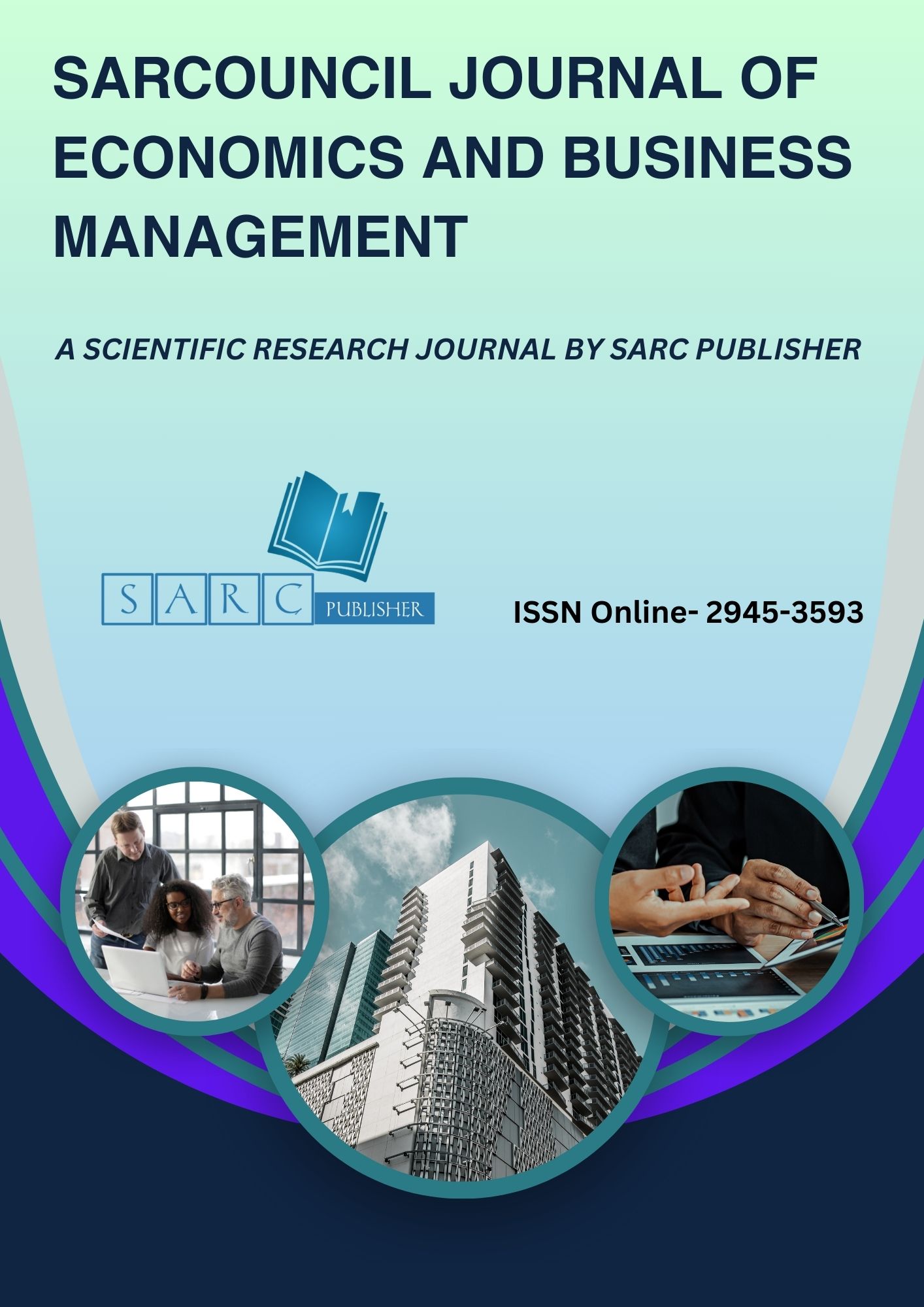Sarcouncil Journal of Economics and Business Management

Sarcouncil Journal of Economics and Business Management
An Open access peer reviewed international Journal
Publication Frequency- Monthly
Publisher Name-SARC Publisher
ISSN Online- 2945-3593
Country of origin- PHILIPPINES
Impact factor- 3.1
Language- English
Keywords
- Accounting, Administrative System, Brand Innovation and Brand Management, Business, Management, Business Economics, Business Policy and Strategy, Critical Management Studies, Data Management, Design Management, Economic Management, Educational Management, Emerging Technology
Editors

Dr Hazim Abdul-Rahman
Associate Editor
Sarcouncil Journal of Applied Sciences

Entessar Al Jbawi
Associate Editor
Sarcouncil Journal of Multidisciplinary

Rishabh Rajesh Shanbhag
Associate Editor
Sarcouncil Journal of Engineering and Computer Sciences

Dr Md. Rezowan ur Rahman
Associate Editor
Sarcouncil Journal of Biomedical Sciences

Dr Ifeoma Christy
Associate Editor
Sarcouncil Journal of Entrepreneurship And Business Management
Modernizing General Ledger Reconciliation Standards: Reducing Systemic Risk in Financial Reporting Across Public and Private Sectors
Keywords: General Ledger Reconciliation, Systemic Risk, Financial Reporting, Automation, Artificial Intelligence.
Abstract: General Ledger (GL) reconciliation is a fundamental control in financial reporting, which is critical for accuracy, transparency and reliability of accounting records both in public and private sectors. Yet, the continued reliance on manual processes, outdated technology and inconsistent reconciliation standards have resulted in systemic weaknesses such as financial misstatements, regulatory exposure, operational inefficiency and trust among stakeholders. These deficiencies are exacerbated by increasingly intricate and internationally linked financial systems, which further increase the risks to both an institution’s performance and overall stability. This study reinforces the idea that modernization is not an engineering luxury, but rather a strategic necessity. The research is lighting on automation, RPA, AI, blockchain and Cloud-based ERP platforms which enable a transformation of reconciliation from a periodic error prone task to a continuous proactive and highly reliable financial control. These results also underscore the importance of governance reform, data standardization and effective change management in sustaining gains from technological innovation. Barriers that are specific to sectors, for example lack of resources and procurement difficulties in the public sector or integration and cyber-security risks in the private sector require both a bespoke response with regulatory cooperation and cross-sector measures. Finally, up-to-date GL reconciliation systems are poised to strengthen organizational agility, increase transparency and secure the integrity of a financial ecosystem. By combining sophisticated technology and strong governance, institutions will be able to minimize systemic weaknesses, enhance transparency and construct a more sustainable and trusted financial reporting ecosystem.
Author
- Jehu Emefa Nii-Laryea Laryea
- Department of Business Administration University of Professional Studies Ghana
- Kingsford Brakye
- University of South Dakota U.S.A.

